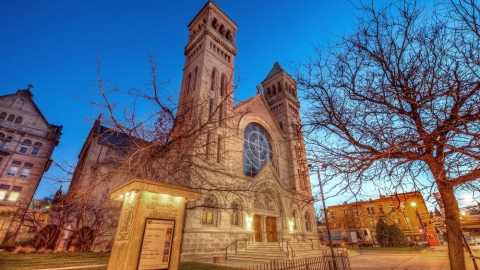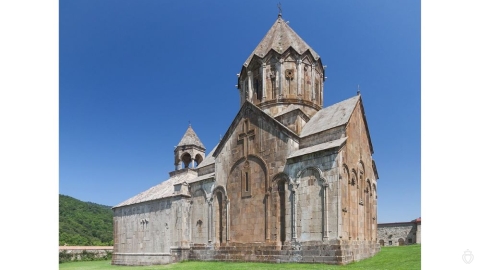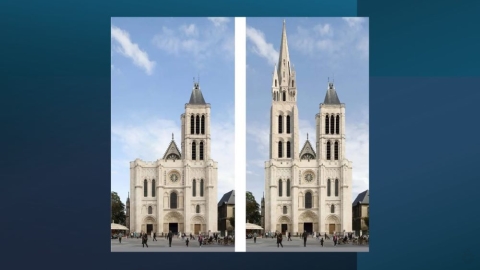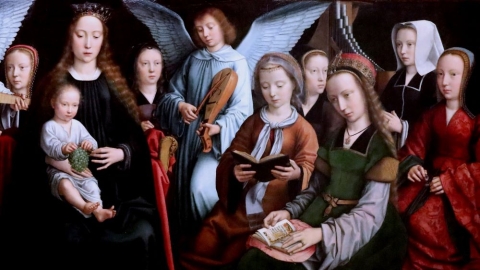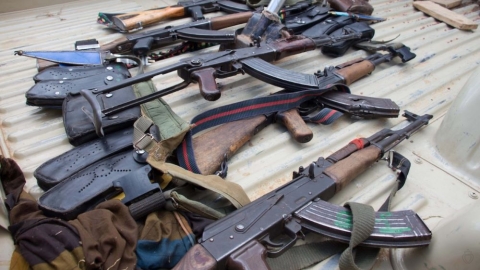The Holy See’s Position on the Holy Land Under Debate

Cardinal Fernando Filoni
Is the Holy See on the eve of initiating a geopolitical shift on the future of the Holy Land? The remarks just made in this regard by a high Roman prelate experienced in Vatican diplomacy in mid-March 2024 have been far from unnoticed.
The high prelate, former substitute for the Secretariat of State (a key Roman post) and current grand master of the Equestrian Order of the Holy Sepulcher and Jerusalem, spoke in the context of the deadly war which pits the Israeli army against the Islamist militants of Hamas, since the bloody attacks of October 7, 2023.
It is a conflict which appears to be at an impasse despite all the mediation efforts of the Holy See, and which requires “a change of mentality,” according to Cardinal Fernando Filoni. “I do not know if two States are better than a single unified good,” stated the diplomat, whose remarks quickly spread online.
And for good reason. As part of its geopolitics of the Holy Land, the Holy See, for several decades, has defended – in concert with most Western chancelleries – the principle of a two-state solution in the region, Israeli and Palestinian.
In September 2023, before the Hamas attack on Israel, Paul Richard Gallagher, linchpin of Vatican diplomacy, pleaded at the UN for a peace plan which would not be carried out “to the detriment of local populations or legitimate Israelis and Palestinians demands.”
On the subject of the Palestinians, the prelate of British nationality asked for “honest recognition” of the fact that they find themselves in a “very weak position,” both due to problems of internal governance, but also due to “the attitude of increasingly authoritarian and militarily invasiveness of the State of Israel.”
Reacting to the “inhumane” attack by Hamas against Israel, Cardinal Secretary of State Pietro Parolin also reiterated the vision of a two-state solution “which would allow Palestinians and Israelis to live side by side, in peace and Security.”
A few months later, the tone is obviously no longer the same. When journalists pressed him and asked whether, in his opinion, a two-state solution was still viable, Cardinal Filoni replied: “I cannot say,” specifying that it was difficult to predict the results of such a solution because “we are dealing with two realities that live in one and the same territory.”
These comments constitute an indication of a position that is being reassessed in the face of the inability of the international community to impose a settlement to the conflict. In any case, a debate exists at a high level in the Church. Speaking on March 25 in America magazine, Gallagher recalled his preference for a two-state solution “apart from the question of Jerusalem.”
As for Cardinal Pierbattista Pizzaballa, Latin Patriarch of Jerusalem, he stated on October 26: “In the near future, it seems to me that coexistence between Israelis and Palestinians will be impossible in practice. We will have to see where this will lead concretely, and what it’s implications for the lives of Christians here. But one thing is certain: nothing will be the same again.”
The tone is the same with Cardinal Filoni: “The first and most important thing to work for is coexistence, in respect and recognition of the right of everyone to live in justice, because if this is lacking, having two or three States would not solve anything,” he insisted. He also detailed the financial aid provided to the Latin Patriarchate of Jerusalem by the Order of the Holy Sepulcher.
“Ninety percent of the Order’s income goes to helping Catholic works in the Holy Land,” specifies the cardinal. Income which comes – in addition to donations from members – from the famous Palazzo della Rovere, an emblematic place in the Eternal City, about to be converted into a luxury hotel in order to generate healthy profits.
(Source : Crux – FSSPX.Actualités)
Illustration : Simon Liu / Office of the President, via Wikimedia Commons
